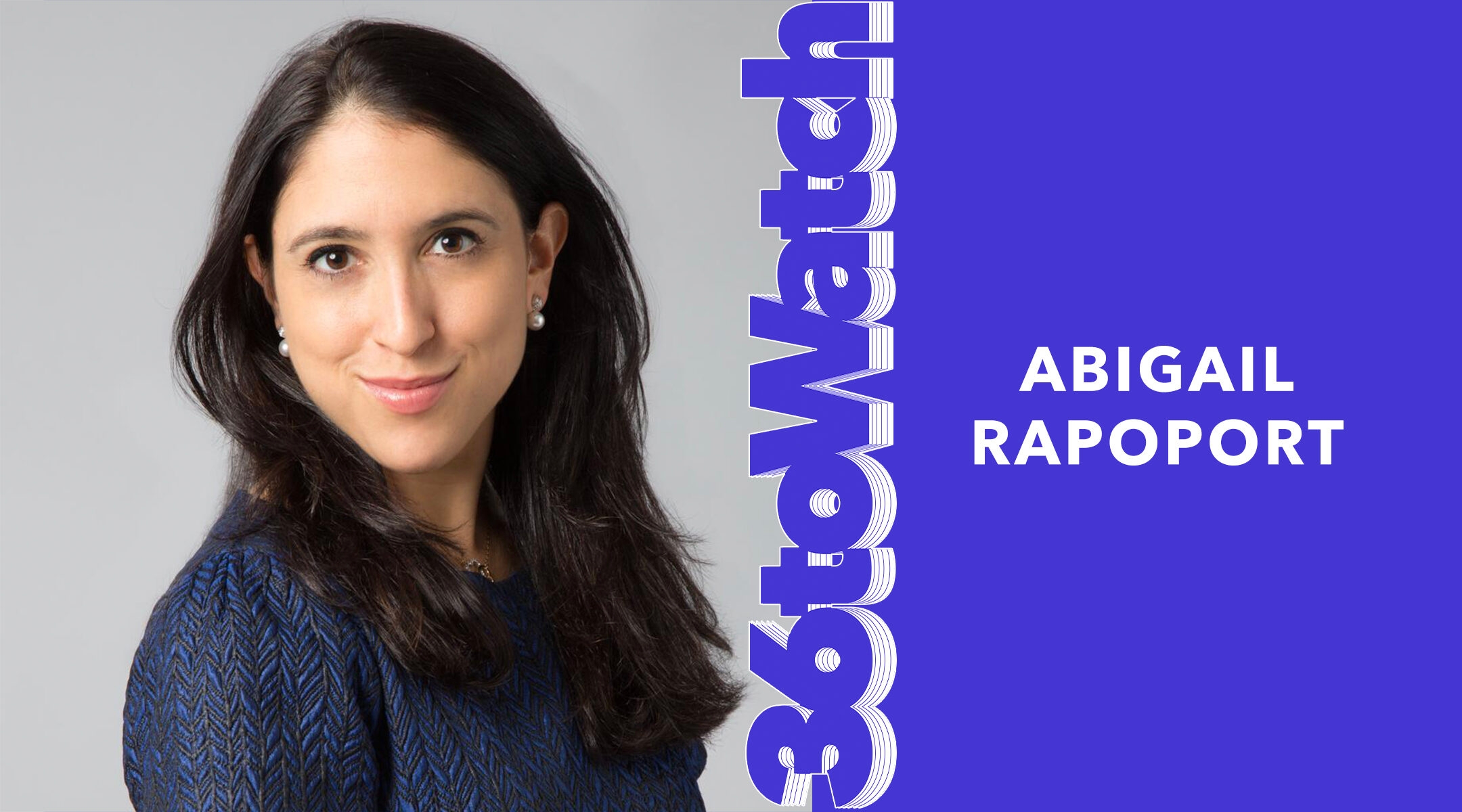Abigail Rapoport, a curator of Judaica at the Jewish Museum in New York City, was selected as one of the New York Jewish Week’s 36 to Watch (formerly 36 Under 36). This distinction honors leaders, entrepreneurs and changemakers who are making a difference in New York’s Jewish community. Rapoport joined the museum staff in January 2020; she previously worked at the Metropolitan Museum of Art, the Morgan Library & Museum, the Philadelphia Museum of Art and the Israel Museum. She lived on the Upper West Side for 10 years before recently moving to West Hempstead.
For the full list of this year’s “36ers,” click here.
New York Jewish Week: Tell us a little bit about yourself and your career.
Rapoport: In my position as curator of Judaica at the Jewish Museum in New York City, I have primary responsibility for its world-renowned collection of Judaica — one of the largest (though, in my opinion, the best) such collections in the world. I also work to expand representation within the museum’s Judaica collection. I commission works by trailblazing artists, bring in and exhibit artworks from traditionally overlooked corners of the art world, and deliver public lectures to educate through the historical lessons imbued in the Jewish ceremonial objects housed at the museum.
I seek to elevate Jewish ceremonial art and culture within New York, the United States and the worldwide community. This past December, I traveled to exhibit historically significant Hanukkah lamps (menorot) at the White House and Executive Offices in Washington, D.C. One of those lamps had only last traveled over 80 years ago on its fraught trip to take refuge from the Holocaust in the safety of the Jewish Museum.
Very recently, during Jewish American Heritage month, I was honored to receive an award from the Borough President of Manhattan, Mark Levine, for my contribution to Jewish art and culture in New York.
Who is your New York Jewish hero?
Dr. Vivian B. Mann (1943-2019) — longtime curator of Judaica at the Jewish Museum, professor of Jewish Art and Visual Culture at the Jewish Theological Seminary, Jewish art historian, educator, among many other things. Vivian was a giant in the world of Jewish culture and ceremonial art.
What’s a fun/surprising fact about you?
I always planned to be an academic. I applied to the curatorial position at the Met on a whim, even though I already had an academic fellowship lined up at the Schoenberg Institute for Manuscript Studies (University of Pennsylvania Libraries). But the chance to work at the Met was the opportunity of a lifetime, and backing out from that academic position was one of the hardest things I have ever done.
How does your Jewish identity or experience influence your work?
I grew up in the Modern Orthodox community of Teaneck, New Jersey. Gilded silver objects adorned the Torah scrolls in the synagogue, and Judaica like spice containers, candlesticks, kiddush cups and more filled the home and were used weekly. These pieces were beautiful and functional. Art coexisted with Jewish ritual in my childhood home.
My great-grandmother was a professional artist and professor, and I was surrounded by her abstract paintings and sculptural objects. She encouraged me to take art classes, and (unknowingly) encouraged me to buy too many art books (which, to my family’s chagrin, I still have to this day). I was always fascinated by objects as silent but lasting witnesses to history, and with my great-grandmother’s passing, that sentiment took on additional meaning.
When I got to graduate school, I began to pore over Jewish ceremonial objects as works of art — contextualized within the broader culture of the time. It was around that time that I also noticed a gaping hole in art history textbooks, namely, the representation of Jewish communities through art was painfully absent. (Jews and Christians coexisted, living not far from each other, and often sharing the same craftsmen for their respective liturgical art). That inspired me to begin to fill that hole.
What is your favorite place to eat Jewish food in New York?
Shabbat dinner (pre-paid) at Talia’s Steakhouse on the Upper West Side.
What is your favorite book about New York?
“My Name is Asher Lev” by Chaim Potok
Want to keep up with stories of other innovative Jewish New Yorkers? Click here to subscribe to the Jewish Week’s free email newsletters.
The New York Jewish Week brings you the stories behind the headlines, keeping you connected to Jewish life in New York. Help sustain the reporting you trust by donating today.





